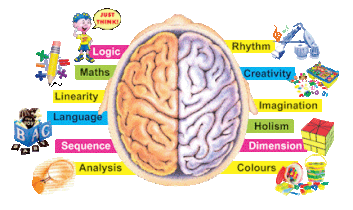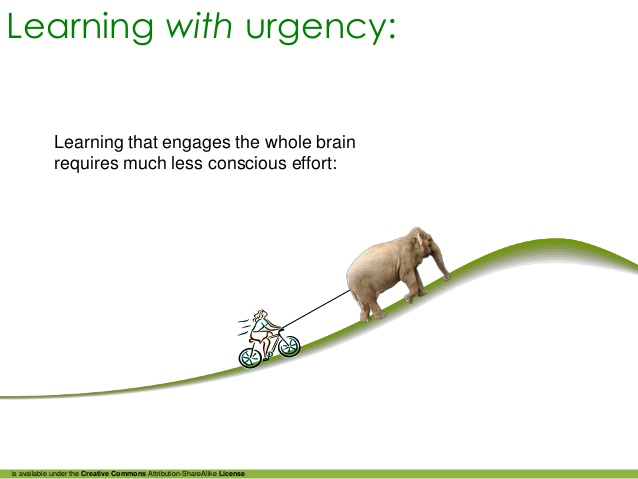| Isn’t it interesting when you learn something easily and quickly – have you noticed how you do it? It is usually because you are interested in the subject and/or have a strong motivation to learn. One of the other reasons is that you have involved your whole brain in the learning process. This means you are activating the left and right hemispheres as well as your limbic system, consciously or subconsciously, in the learning process. |
The right brain is visual and sees the whole picture at once. It uses symbols, images, melodies, patterns and imagistic and intuitive thinking.
The limbic system plays an important part of our long term memory. It decides if information is relevant and useful to you, based on its emotional appeal. When what you are learning appeals positively to your emotions, through colours, pictures, games, challenges or musical accompaniment, you learn better and remember more easily.
By deliberately using all three parts of our brain, we remember much more easily…
| So, if I am helping someone to learn a language – what do I do? Firstly, you need to visualise yourself speaking your language fluently. Let your visualisation have the ‘wow’ factor. Everytime you ‘see’ yourself, get excited. The visualisation MUST have emotional triggers to work. Contact VLLC to help you learn a language with your eyes closed and utilise your whole brain. Jo Ammerlaan, National Manager VLLC and Master NLP Practitioner |








 RSS Feed
RSS Feed

